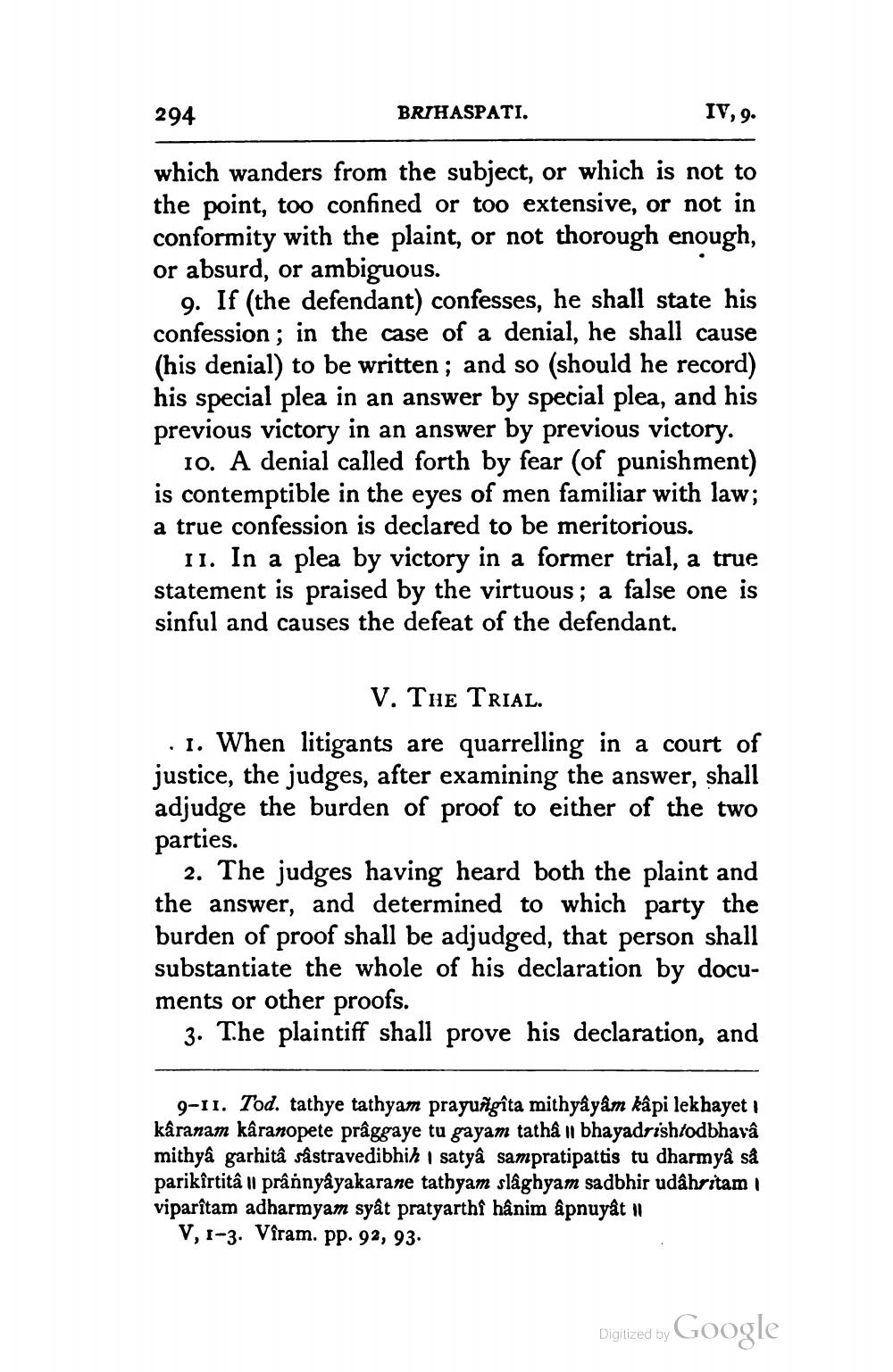________________
294
BRTHASPATI.
IV, 9.
which wanders from the subject, or which is not to the point, too confined or too extensive, or not in conformity with the plaint, or not thorough enough, or absurd, or ambiguous.
9. If (the defendant) confesses, he shall state his confession; in the case of a denial, he shall cause (his denial) to be written; and so (should he record) his special plea in an answer by special plea, and his previous victory in an answer by previous victory.
10. A denial called forth by fear (of punishment) is contemptible in the eyes of men familiar with law; a true confession is declared to be meritorious.
11. In a plea by victory in a former trial, a true statement is praised by the virtuous; a false one is sinful and causes the defeat of the defendant.
V. THE TRIAL . 1. When litigants are quarrelling in a court of justice, the judges, after examining the answer, shall adjudge the burden of proof to either of the two parties.
2. The judges having heard both the plaint and the answer, and determined to which party the burden of proof shall be adjudged, that person shall substantiate the whole of his declaration by documents or other proofs.
3. The plaintiff shall prove his declaration, and
9-11. Tod. tathye tathyam prayungîta mithyâyâm kâpi lekhayet i karanam kâranopete prâggaye tu gayam tathå 11 bhayadrishtodbhava mithya garhitâ sastravedibhih | satyâ sampratipattis tu dharmya så parikîrtitâ Il prânnyâyakarane tathyam slåghyam sadbhir udâhritam viparîtam adharmyam syât pratyarthî hânim âpnuyât 11
V, 1-3. Viram. pp. 92, 93.
Digitized by Google




